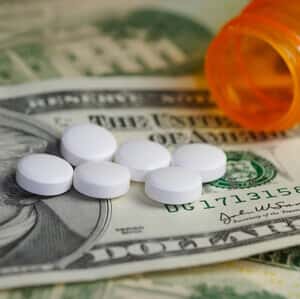
Generic drug companies have come under fire in recent years because of extraordinary price increases in their previously affordable products. The cost of medications like the antibiotic doxycycline has skyrocketed.
Investigation of Possible Price Collusion:
Now, the Justice Department is investigating some of the biggest generic drug manufacturers for price collusion. Until the last few years, anyone who had to pay for prescription drugs loved generics. That included hospitals, insurance companies, the VA and the FDA. Businesses that offered their employees health coverage also embraced generic drugs. After all, low-cost generic products saved everyone money. According to the FDA, Americans saved $158 billion in 2010 alone by purchasing generics instead of brand name drugs.
These savings come in large part from outsourcing. Highly competitive generic manufacturers are increasingly using inexpensive suppliers in countries like China, India, Slovakia or Thailand. Some foreign firms have been caught falsifying data or producing medications that do not meet good manufacturing practices.
The new investigation is focused on a different issue entirely. The Antitrust Division of the Justice Department is looking for evidence that generic manufacturers may have colluded on pricing. A dozen companies are under scrutiny. They include some of the largest generic makers in the world.
Which Drugs Are Affected?
Some of the medicines under scrutiny by the Department of Justice include the heart medicine digoxin, the antibiotic doxycycline, the asthma drug terbutaline and the psoriasis medication calcipotriene.
The Government Accountability Office (GAO) has reported that over the last five years more than a fifth of the generic drugs it analyzed had a price jump of 100 percent or more. That kind of inflation has also spurred Attorneys General from several states to investigate price fixing.
Are Rising Generic Drug Costs Responsible for Drug Shortages?
Not only have prices gone up; health care providers have been struggling with rampant drug shortages for the last several years. Critical medicines including antibiotics, cancer chemotherapy and injectable medications used during surgery have landed on the FDA’s Drug Shortages list.
The feds blame such medication scarcities on problems with manufacturing, supply-chain trouble or discontinuations. Some experts have expressed concern that a few companies may have reached agreements to stop making certain generic medications. When a drug is in short supply, prices often rise, sometimes dramatically.
Patients are caught in the middle. On the one hand, they hear from the FDA that generic drugs are a great way to save money. On the other hand, prices at the drugstore may be much higher than before.
The FDA says all generic drugs are identical to brand name medicines. Then consumers read that many foreign drug firms have been accused of fraud or quality control problems. If generic firms are now caught colluding on prices, it will undermine consumer confidence in generic drugs even more. You can learn more in our Guide to Saving Money on Medicines.

